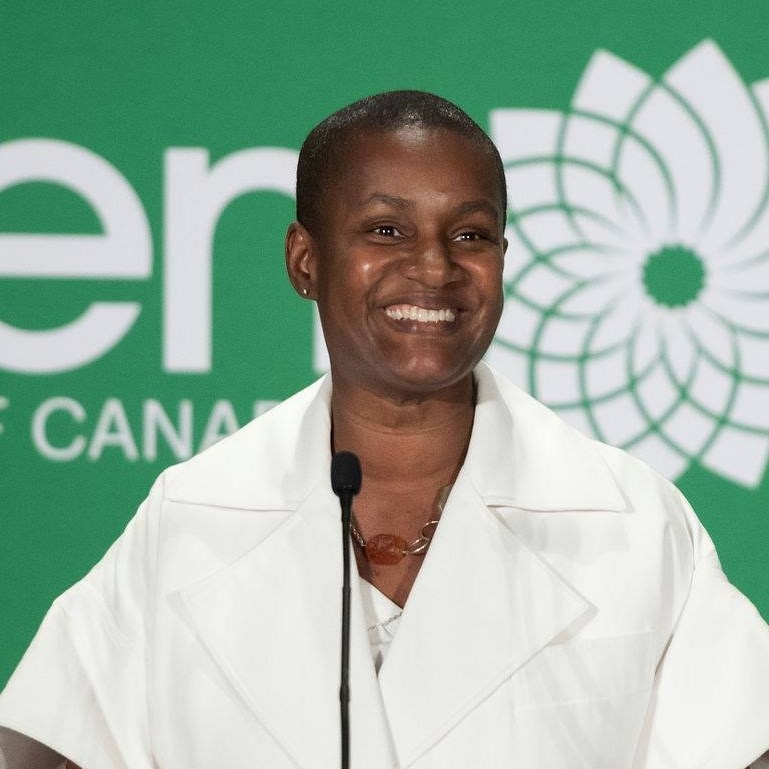
Annamie Paul, leader of the Green Party and candidate for Toronto Centre, spoke with On the Record about issues that matter to students.
Paul founded and directed the Canadian Centre for Political Leadership (CCPL) from 2001 to 2005. It trained women and under-represented minorities to run for elected office. Today, she is the first Black and first Jewish woman to be elected leader of a federal party in Canada.
To learn more about Annamie Paul, you can visit her website at www.annamiepaul.ca.
This interview has been edited for clarity and flow. Ryerson University is undergoing a name change amid reckoning with its name’s link to Canada’s residential schools. Accordingly, some refer to Ryerson as X University.
On The Record: School tuition is becoming increasingly hard to manage and as a result many students are finding themselves in serious debt. In what ways will the Green Party help students with this issue?
Annamie Paul: For quite a number of years now, the Green Party has been calling for the abolishment of post-secondary tuition. We agree with you that the debt loans have become completely unmanageable, particularly for low-income and marginalized students, and it just creates one more layer of inequality. We also think that post-secondary education is a necessary level of education, and fewer jobs are accessible without it. Even in terms of civic literacy, it’s become more important as well.
We believe that [education] should be universally accessible and we should join the countries that have made the commitment to offer high quality, no cost or very low cost, post-secondary education. And for students who have already taken on debt, we have advocated for the forgiveness of the federal portion of student loans.
OTR: Ryerson University is in the process of changing its name amid the reckoning of Indigenous residential schools. In what ways will you be helping Indigenous communities in Toronto Centre?
A.P.: I’m sure you know Toronto Centre is home to one of the largest urban Indigenous populations in the country. During the pandemic, we’ve been virtually meeting with the Native Women’s Resource Centre and other groups that work with Indigenous peoples in Toronto Centre, and we talk about things like affordable housing and increasing access to services. We always talk about those things through an Indigenous lens. If you look at our platform it will have sections that relate to housing affordability and access to mental health services, all of which contain an Indigenous section as well. And of course, the underlying work of reconciliation and respecting Indigenous self-determination is something that our party is very committed to.
OTR: During this year’s election, we have seen a dramatic increase of racism, misogyny and violence. Where do you think this came from?
A.P.: I think that people have seen rising inequality for many years and the pandemic produced even more inequality. Even with the emergency benefits programs, we saw that the pandemic disproportionately impacted low-income and marginalized people. When inequality rises, social cohesion is also undermined. It’s very important for us to attack the underlying causes of hate and discrimation if we’re hoping to maintain our social cohesion. Also, people being at home for very long periods of time and living in the echo chambers of social media hasn’t helped either. Social media giants must do their part to police their services so that hateful ideologies don’t grow [on their platforms].
Also, everyone needs to do their own part. They have to ask themselves before they say or do something whether it’s going to contribute to more solidarity between peoples or whether it’s going to contribute to more divisions. I think that politicians as well have a role to play in that because we can either say things that are polarizing and create divisions for our own personal political gain or we can keep in mind that we’re setting an example for the general public and that our words and actions have consequences.
OTR: What is your favourite restaurant in Toronto Centre?
A.P.: Oh, I don’t have favourites. My kids will always ask me what’s your favourite this or that and it all just depends on your mood. You may absolutely love Indian food or you may have a craving for Mexican [food] on that particular day. There’s so many beautiful restaurants in Toronto. When it comes to choosing just one, you’re really spoiled in that sense. Let’s just say that, whatever your preferences, you can absolutely find it in Toronto Centre.
OTR: If you were to have a super power, what would it be and why?
A.P.: My answer would change depending on the day but for today I would say that my superpower is the ability to have a full day of activities, while at the same time being able to sleep. So I don’t know if that’s something like astral projection or something like that but somehow being able to do those two things at once. I think that every other politician you speak with today, that would be their answer.
OTR: What message would you like to give to our students at Ryerson University?
A.P.: Please vote. Even with a week left, there’s still enough time for you to become actively engaged in the campaign of someone that you support. The most impactful thing that students could do this year for the climate or for the students who are suffering with debt or who didn’t have a summer job this year because of the pandemic, any of the other issues that students have said that they care about, the most impactful things they can do is vote. Vote for leadership that is going to be supportive of those issues and that are going to prioritize those issues because, unfortunately, the student voice is still very much taken for granted and that would definitely change if the students turned out to vote in greater numbers.
